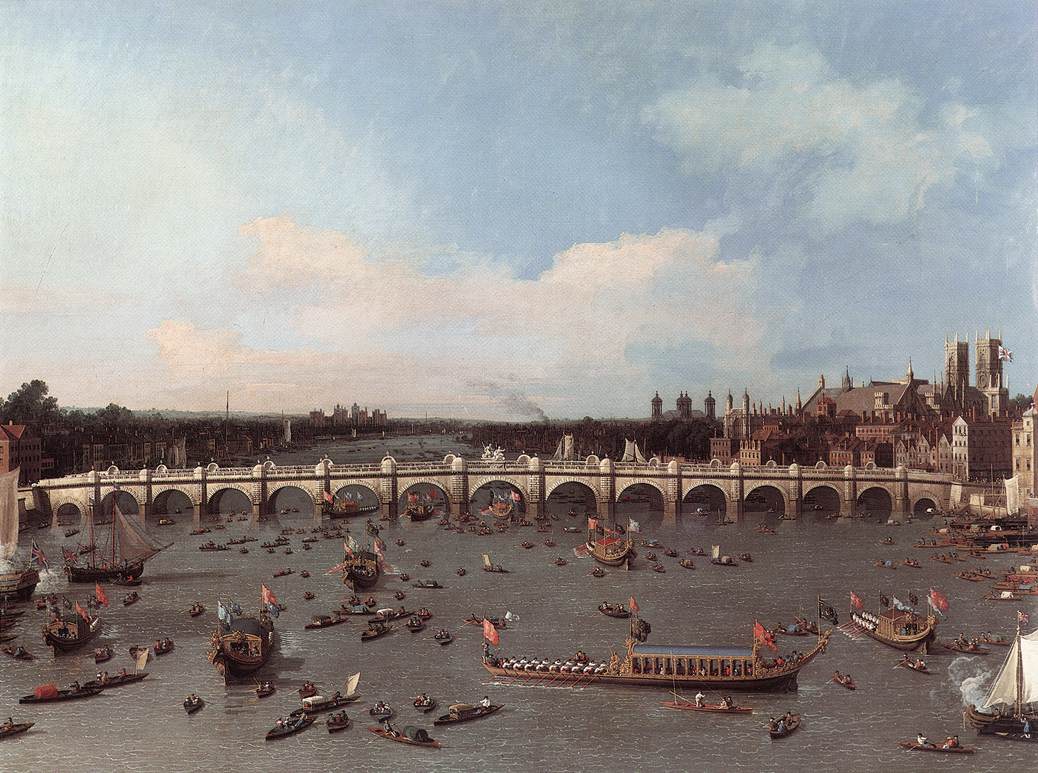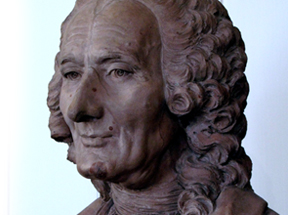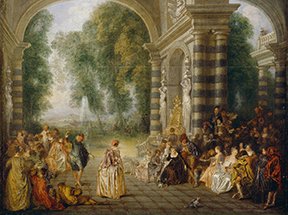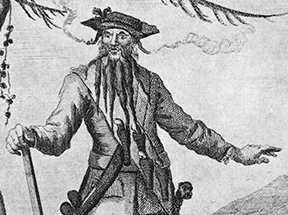Here are the official program notes for Handel Water Music
Directed by Elisa Citterio, violin
September 22–25, 2016, Koerner Hall, TELUS Centre for Performance and Learning September 27, 2016, George Weston Recital Hall, Toronto Centre for the Arts
PROGRAM NOTES by Charlotte Nediger
Bach Orchestral Suite no. 4 Two of Bach’s official posts required him to compose and perform a great deal of instrumental music: that of Capellmeister to Prince Leopold of Cöthen (1717–1723), and that of Director of the Collegium Musicum in Leipzig (1729–1741). Unfortunately, much of the music Bach wrote for these posts is thought to have been lost. Many works, including the four orchestral suites, have survived only in the form of copies by Bach's friends or colleagues. The last suite is the grandest of the four, scored for three oboes, bassoon, three trumpets, timpani, strings, and continuo. In its original version, probably written at Cöthen but no longer extant, it did not employ trumpets and timpani. Bach used the overture, with the addition of trumpets, timpani, and choir, as the opening chorus of Cantata 110, “Unser Mund sei voll Lachens,” written for a Christmas service in Leipzig in 1725. A few years later, he turned to the work again, creating the suite as we now know it, presumably for performance at the Collegium Musicum. For this version he retained the trumpet and timpani parts of the chorus, with slight alterations, and re-worked the original dance movements to include the brass.
Rameau Dances from Les Indes Galantes Jean-Philippe Rameau astonished the Parisian public in 1733 when, at the age of 50, he presented his first opera, Hippolyte et Aricie. André Campra, Lully’s successor at the Paris opera, said of the first performance, “My Lord, there is enough music in this opera to make ten of them; this man will eclipse us all.” For his second foray into stage music two years later, Rameau turned to the form made popular by Campra, the opéra-ballet. The convoluted plots of the grand mythological tragedies are replaced in the opéra-ballet by a loosely structured series of tableaux linked by a general theme. The thread that links the four acts of Rameau’s first opéra-ballet, Les Indes galantes, is the eighteenth-century notion of the exotic. Each act presents a tale of love and intrigue in a distant land, the Indies in this case represented by Turkey, Peru, Persia, and North America. The whole is preceded by a prologue extolling the universal power of love. The work was enormously popular, and between 1735 and 1773 it was performed no fewer than 320 times at the Royal Academy of Music in Paris. In the complete opera there are some 90 minutes of instrumental music, of which we offer a very brief sampling. The opera ends in the forests of North America, with “les sauvages” dancing the ceremony of the Grand Calumet de la Paix (Peace Pipe), and all joining in a final Chaconne. To this we add a lively Tambourin danced by sailors from the Turkish entrée.
 Canaletto, 1697–1768. Westminster Bridge, With the Lord Mayor's Procession On the Thames. 1747.
Canaletto, 1697–1768. Westminster Bridge, With the Lord Mayor's Procession On the Thames. 1747.
Handel Water Music At about eight in the evening the King repaired to his barge. Next to the King’s barge was that of the musicians, about 50 in number, who played on all kinds of instruments, to wit trumpets, horns, hautboys [oboes], bassoon, German flutes [transverse flutes], French flutes [recorders], violins, and basses; but there were no singers. The music had been composed specially by the famous Handel, a native of Halle, and His Majesty’s principal court composer. His Majesty approved of it so greatly that he caused it to be played three times in all, although each performance lasted an hour — namely; twice before and once after supper. The [weather in the] evening was all that could be desired for the festivity, and the number of barges and above all of boats filled with people wanting to listen was beyond counting. It was on the occasion of the royal river excursion of July 17, 1717, described above by the Brandenburg Resident in London, Friedrich Bonet, that Handel’s “Celebrated Water Music” was first performed. River parties were regular occurrences during the summer season in eighteenth-century London, and royal excursions were important social occasions. The 1717 event was apparently the grandest, and possibly the last, of King George I’s water parties. A contemporary newspaper account reported that there were so many boats, filled with “persons of quality,” that “the whole river in a manner was cover’d.” The barges floated up the river from Whitehall to Chelsea, riding the tide. The King and his party were served dinner at Chelsea at one o’clock in the morning, returning to St. James’s Palace at half-past four. Handel’s reputation, both with the royal family and the more general public, was served well by his contribution to the “royal cruise.” Movements from the so-called Water Music appeared in various publications for several decades, and concert performances were very popular. Throughout the work the wind and brass instruments, so well suited for outdoor use, figure prominently. This week we are performing the entire Water Music, in an arrangement of movements as may have been used in eighteenth-century concert versions.
SNAPSHOT OF 1717: THE YEAR OF WATER MUSIC MUSIC 
ART & LITERATURE 
HISTORY 
